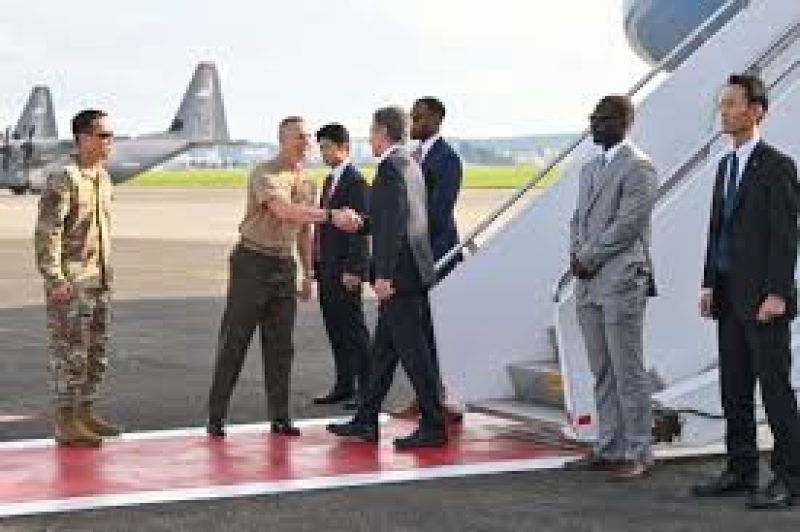- Fourth Palestinian baby freezes to death in Gaza amid winter crisis |
- Prof Yunus to focus on digital health, youths, ‘Three Zeros’ |
- Who’re back in the race? EC clears 58 candidates for Feb polls |
- 8 workers burnt in N’gan Akij Cement factory boiler blast |
- Ex-Shibir activist shot dead in Fatikchhari |
Blinken arrives in Japan for 2+2 security talks, Quad

U.S. Secretary of State Antony Blinken arrived in Japan on Sunday as part of an Asia-Pacific tour aimed at shoring up alliances in the face of an increasingly assertive China.
The visit comes three months after President Joe Biden and Prime Minister Fumio Kishida announced what they called a new era in Japanese-U.S. relations at a summit at the White House.
Blinken and U.S. Defense Secretary Lloyd Austin are due to hold 2+2 talks with Japanese Foreign Minister Yoko Kamikawa and Defense Minister Minoru Kihara.
Then on Monday Blinken and Kamikawa will meet Indian Foreign Minister S. Jaishankar and Australia's Penny Wong, their counterparts in the Quad, an alliance seen as a bulwark against Beijing, reports VOA.
Prompted by unease about China and alarm about North Korea, Japan has in recent years been shedding its strict pacifist stance, ramping up defense spending and moving to obtain counterstrike capabilities.
This month Japan and the Philippines — Blinken and Austin's next stop — signed a defense pact that will allow the deployment of troops on each other's territory.
This followed the first trilateral summit in April between the leaders of Japan, the Philippines and the United States in Washington.
As with Manila, Japan and South Korea have also moved to bury the hatchet over World War II, with Biden hosting both countries' leaders at Camp David last August.
Scheduled to join the talks in Tokyo this weekend was Shin Won-sik, the first South Korean defense minister to visit Japan in 15 years.
As part of the April announcement, Washington and Tokyo plan to upgrade their command structures — at present the 54,000 U.S. troops in Japan report back to Hawaii — and improve the interoperability of their militaries to "deter and defend against threats."
On Sunday Austin will announce that the U.S. will upgrade the current U.S. Forces Japan headquarters, which is largely an administrative office, to an all-service or Joint Force headquarters led by a three-star commander, The Washington Post reported.
Sunday's talks were also set to cover enhancing Washington's "extended deterrence" commitment to use its military capabilities, including nuclear weapons, to protect Japan.
China's military modernization, North Korea's nuclear and missile work and nuclear saber-rattling in the Ukraine war have unsettled Japan, said Naoko Aoki, political scientist at the RAND think-tank.
"(It) is important for the United States to reassure Japan of its commitment and signal to potential adversaries that the alliance remains strong and that the United States is committed to using nuclear weapons if necessary to defend Japan," she told AFP.

